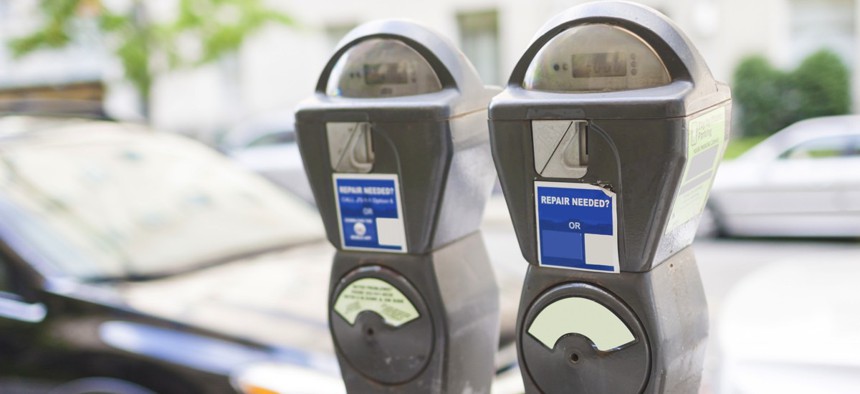Connecting state and local government leaders
Xerox’s parking and mobility vice president Matt Darst weighs in.
From the race to get self-driving cars on the road to the phasing out of parking meters, the transportation industry is in a real state of flux entering 2016.
Cities introduced a steady stream of parking and mobility innovations in 2015.
Norwalk, Connecticut-based business services company Xerox is a major player in the space, and Route Fifty spoke to its parking and mobility vice president, Matt Darst, about where the market is headed.
Here are a few of his predictions:
1) Driverless cars are, conservatively, 10 to 20 years away. Numerous technical, ethical and policy hurdles remain before you’ll see autonomous vehicles hitting state and local byways.
The technology is the least pressing, Darst said, though car cameras and sensors don’t always work depending on the conditions and have trouble detecting certain objects. Still, those challenges are surmountable.
Less clear is in what situations should motorists be reengaged by the computer—emergencies certainly. But what decisions should the car make?
Risk will have to be factored in when two collision paths present themselves, and the ethics of doing no harm to drivers versus the vehicles themselves are unclear.
And then there’s the policy elephant in the room.
“We’re really talking about who controls the road, and municipalities are very used to making decisions about the public way,” Darst said. “You have to think there will be some federal mandate requiring the registration of all events so drivers have access to uniform information.”
Protocols for parades and sporting events must be programmed into the technology guiding self-driving vehicles.
Most cities likely won’t opt for identical approaches, so states may need to step in where permitting is concerned.
People like the disruptive technology, but cities will be left to address transportation revenue shortfalls resulting from reduced ticketing.
There remains an opportunity and a need for developers to collaborate more closely with government.
2) Cars will replace parking meters, ending sessions when they leave spaces. In Washington, D.C., the most advanced U.S. city where parking is concerned, around 60 percent of meters are paid via an app, Darst said, and 20 percent on average elsewhere.
Depending on app uptake, the decline of coin-accepting parking meters will vary by municipality, but some only require a quarter an hour and are no longer cost-effective.
Fewer kiosks in centralized locations are also rising in place of meters, and city regulations should push people toward apps, Darst said.
“I would imagine the next round of large meter procurements for cities may be the last,” he said.
3) Car-sharing will get competitive. Car manufacturers will be the biggest group, Darst said, because most states make them sell through dealerships rather than on the Internet.
Use of vehicles as a pooled resource driven on a subscription basis is set to take off in the next few years, and even rental car companies and peer-to-peer services will have skin in the game—the latter to cover costs.
The space has the potential to fill a hole for the underserved, whose access to a car could greatly improve education, job and salary prospects, Darst said, so governments should consider subsidizing not-for-profit operations.
4) Taxes and subsidized parking will boost ridesharing.
“Municipalities have a lot of off-street parking it wouldn’t be unwise to see them offering ridesharing companies, in return for addressing the needs of underserved communities and people with disabilities, who need to get to public transit,” Darst said.
App providers like Uber and Lyft and their users need to be less tone-deaf when it comes to solving government problems, he added, while officials should avoid applying onerous tax codes to startups as a barrier to entry.
Allowing ridesharing companies to solve their “last mile” problem and reach profitability before taxes and licensing fees kick in is an alternative approach, especially with startups employing five or fewer people and funding themselves out of pocket.
With all these advances, government transportation revenue can dry up in a number of places from cabbie surcharges to parking meters. Replacing those sizeable contributions to general funds will involve researching fuel taxes, vehicle ownership charges and on-street use permitting among others to find the right fit.
“I’m not sure I’ve got the right answer,” Darst said.
Dave Nyczepir is a News Editor at Government Executive’s Route Fifty.

NEXT STORY: GAO: FCC needs better data on IP transition




